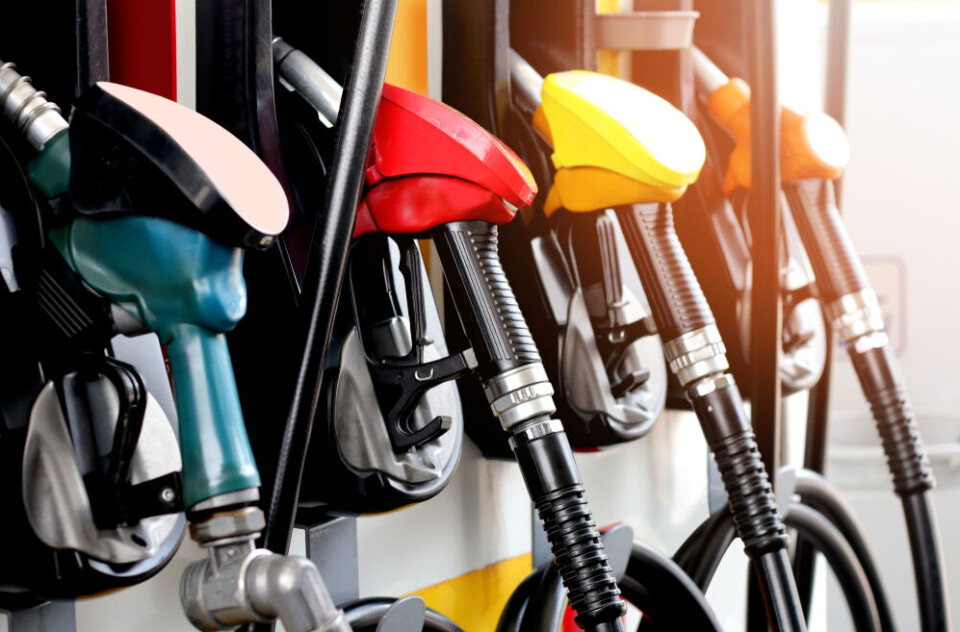-
Britons are the largest foreign community of second-home owners in Nouvelle Aquitaine
See which other departments in the region are popular with British nationals
-
Travellers risk extra costs under new Eurotunnel ticket rule
Some fare options are less flexible and less forgiving of lateness
-
May will be difficult month for train travel in France, warns minister
Two major train unions are threatening to strike and are ‘not willing to negotiate’, he says
Petrol boss rules out selling fuel at a loss in France
Major supermarkets also reject plan even before law change to allow this is voted on

The CEO of France’s largest fuel supplier TotalEnergies has ruled out the possibility of selling fuel at a loss, and said the current €1.99 cap is the ‘limit’ of how low prices will go.
Current plans from the government could see fuel suppliers able to sell petrol and diesel at a loss from December 1 for a six-month period, pending a vote next month on the issue.
TotalEnergies CEO Patrick Pouyanné said that the current €1.99 per litre cap on fuel prices currently implemented by the company was sufficient - and already causing a loss for the company at the pumps.
“Do you often sell products at a loss?" he asked an interviewer who questioned him on the matter, before adding "a bit of common sense, that's all, thank you.”
As of last week, the average price for a litre of SP-95 petrol was over €2 – higher than TotalEnergies’ cap.
Other service station owners including major supermarkets Carrefour, Intermarché, U and E.Leclerc have also ruled out selling petrol at a loss, despite the government’s proposal.
All major suppliers reject proposal
The plan to allow companies to sell fuel at a loss is the government’s main proposal to deal with rising fuel costs hitting consumers hard.
It ruled out any state subsidies of fuel prices, as well as the temporary reduction of petrol taxes and is instead looking to alter a law that prohibits companies selling (most) items at a loss.
“Certain brands have pointed out that they cannot lower their prices any further because it has been illegal to do so since 1963,” said Prime Minister Élisabeth Borne.
Even after the proposed law change, however, fuel suppliers state they are unwilling to drop prices any further.
Carrefour CEO Alexandre Bompard said the company “will not sell at a loss,” in a hearing on the matter at the French parliament on Monday.
The ban on resale at a loss has been “a very important principle of trade since 1963,” he said.
"We must not open this Pandora's box at the risk of weakening both the balance of the sectors and territorial equity between consumers," he added.
The leaders of other major supermarket chains unanimously rejected the government’s proposal during a meeting with ministers on Tuesday morning.
This includes Système U, Carrefour, E.Leclerc, Intermarché, and Auchaun, all of whom manage service stations in France.
Read more: TotalEnergies to continue cap on fuel prices in France into 2024
No plans to subsidise fuel – but aid to help independent service stations
One qualm of the supermarket giants is that the government is seemingly not offering any real incentive in return for selling at a loss.
“Everyone must and can make an effort,” said government spokesman Olivier Véran, echoing Finance Minister Bruno le Maire’s comments last week.
The key difference for larger providers – such as supermarkets – is that low fuel prices can act as a “draw”, bringing in customers to shop in store.
This means they could feasibly sell at a loss, with the increased attraction from cheaper fuel prices bringing in more people to purchase other products, balancing out the books.
For smaller service stations, this is untenable, as they would not sell enough other products to make up the difference.
Under the plans however, the government said they will provide assistance to these smaller suppliers – even if they said nothing about helping the larger ones.
“Independent service stations will benefit from compensation," said government sources from the Finance Ministry, and these smaller stations will be "supported by a multi-year transformation plan designed to enable them to offer new services such as fast charging [electrical] stations.”
Despite almost 50% of fuel costs at the pump being caused by taxes, the government is unwilling to temporarily slash taxes on petrol or diesel, over fears it could enlarge France’s national debt.
“The state cannot bear the cost of inflation by itself, that would only increase the deficit,” said Mr le Maire last week.
Related articles:
Reminder: How to find the best petrol prices near you in France
























